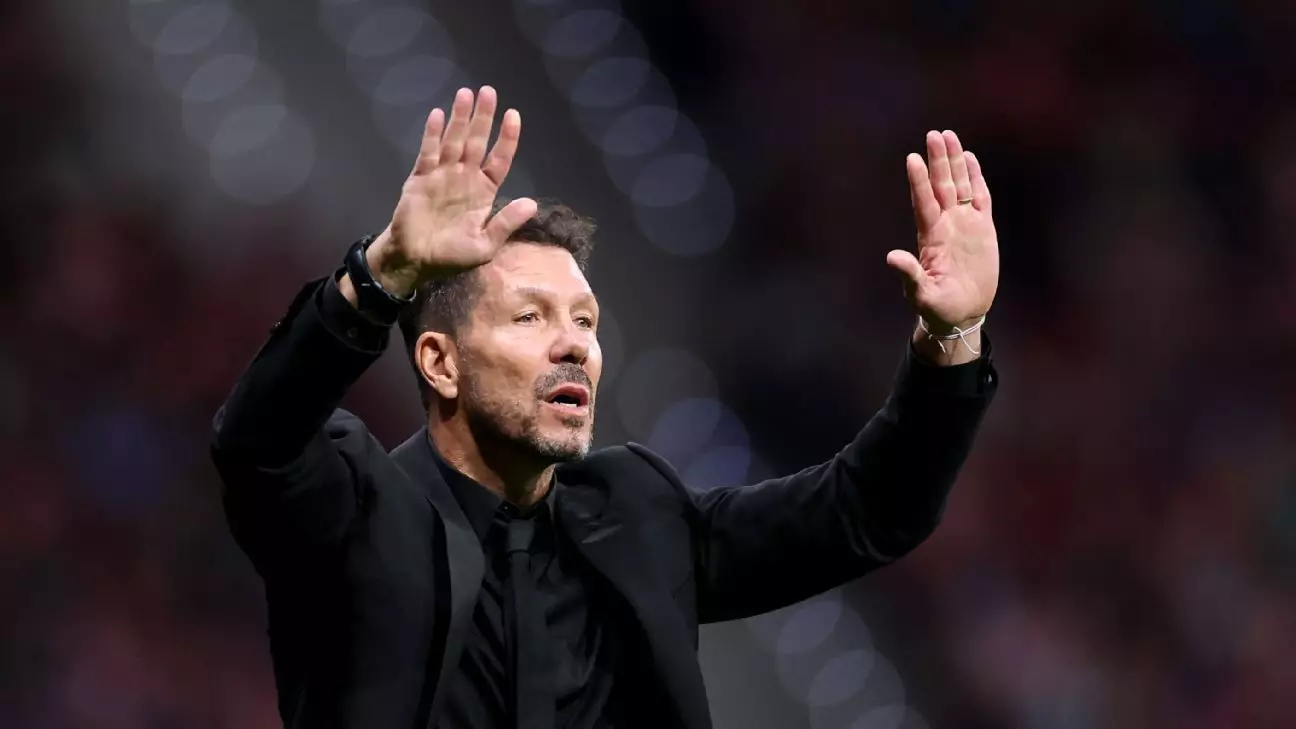The recent Madrid derby between Atlético Madrid and Real Madrid was marred by an alarming interruption caused by unruly fan behavior. During a pivotal moment in the match, fans began throwing objects onto the pitch, which included lighters and plastic bottles. This scene unfolded in the second half when Real Madrid had taken a 1-0 lead through a goal by Éder Militão. As tensions escalated, the game had to be suspended for a total of around 20 minutes, highlighting not just the competitive fervor of these encounters but also the darker elements that can surface under such intense circumstances.
Diego Simeone, the Atlético Madrid coach, did not shy away from voicing his frustration over the situation. His comments emphasized a crucial aspect: while fan actions were unjustifiable, the environment created by player interactions could contribute to such provocations. This game was not just a battle for points, but a microcosm of a larger issue within football—how the interplay between player conduct and fan emotions can lead to regrettable incidents.
Simeone’s critique of both the fans and the players present a fascinating examination of accountability in the realm of football. He pointed out that players must be mindful of their actions, particularly during heated moments. Celebrations that may seem harmless could be perceived differently by passionate fans who may feel that they are being taunted. The Atlético coach’s insights highlight the necessity for a mutual understanding between players and supporters—where passion should manifest in positive ways rather than through disruptive actions.
The referee’s decision to halt the game and subsequently address the situation was met with approval from both coaches, emphasizing the need for a safe environment in which the game can be played. Carlo Ancelotti, Real Madrid’s coach, supported the measured approach taken by the officials, suggesting a broader recognition of the importance of maintaining integrity within the sport.
The aftermath of the incident did not only focus on the immediate halt but also on the broader implications for Atlético Madrid. The club swiftly initiated a response, working alongside local police to identify the individuals responsible for the disturbances. This move illustrates a commitment to maintaining the club’s reputation and the safety of its players, as well as a pledge to preserve the spirit of the game. Football stadiums should be arenas of joy, passion, and camaraderie, not hostility.
In a larger context, such events call into question the responsibility of clubs to foster a culture that prioritizes the wellbeing of all participants—players, officials, and fans alike. The collective pursuit of respect and safety must be at the forefront of narratives surrounding football. Simeone’s insistence that both clubs and players need “to think about the club” serves as a reminder that the experiences shared in stadiums extend beyond the match itself and impact the broader community.
In addition to the disturbances during the game, another pressing matter loomed over this derby: the dark shadow of racism. The Spanish league’s decision to address a social media campaign intended to incite racist behavior adds yet another layer of complexity to the discourse surrounding football culture. Such campaigns are not merely isolated incidents; they are symptomatic of ingrained societal issues that require urgent attention.
The call for responsible behavior extends beyond the pitch. Fans, players, and clubs must unite to combat intolerance and foster an environment where diversity is celebrated. The connection between on-field emotions and off-field actions needs to be acknowledged and addressed thoroughly.
In light of these events, it becomes imperative for all stake-holders—be it clubs, players, or fans—to engage in a deep reflection on the nature of rivalry. Football should not just be an outlet for passion and competition but a community that advances respect and understanding. The Madrid derby, with its rich history and fervent supporters, serves as a powerful reminder of the dual nature of sports: an arena for both triumph and turmoil.
Moving forward, it is essential that lessons from this match be imbued within the sport’s culture, ensuring that future encounters are celebrated without compromising the very values that define football as a beloved global phenomenon. As communities rally behind their teams, let us hope the guiding principle of respect will prevail over the chaos that sometimes threatens to eclipse the beautiful game.


Leave a Reply